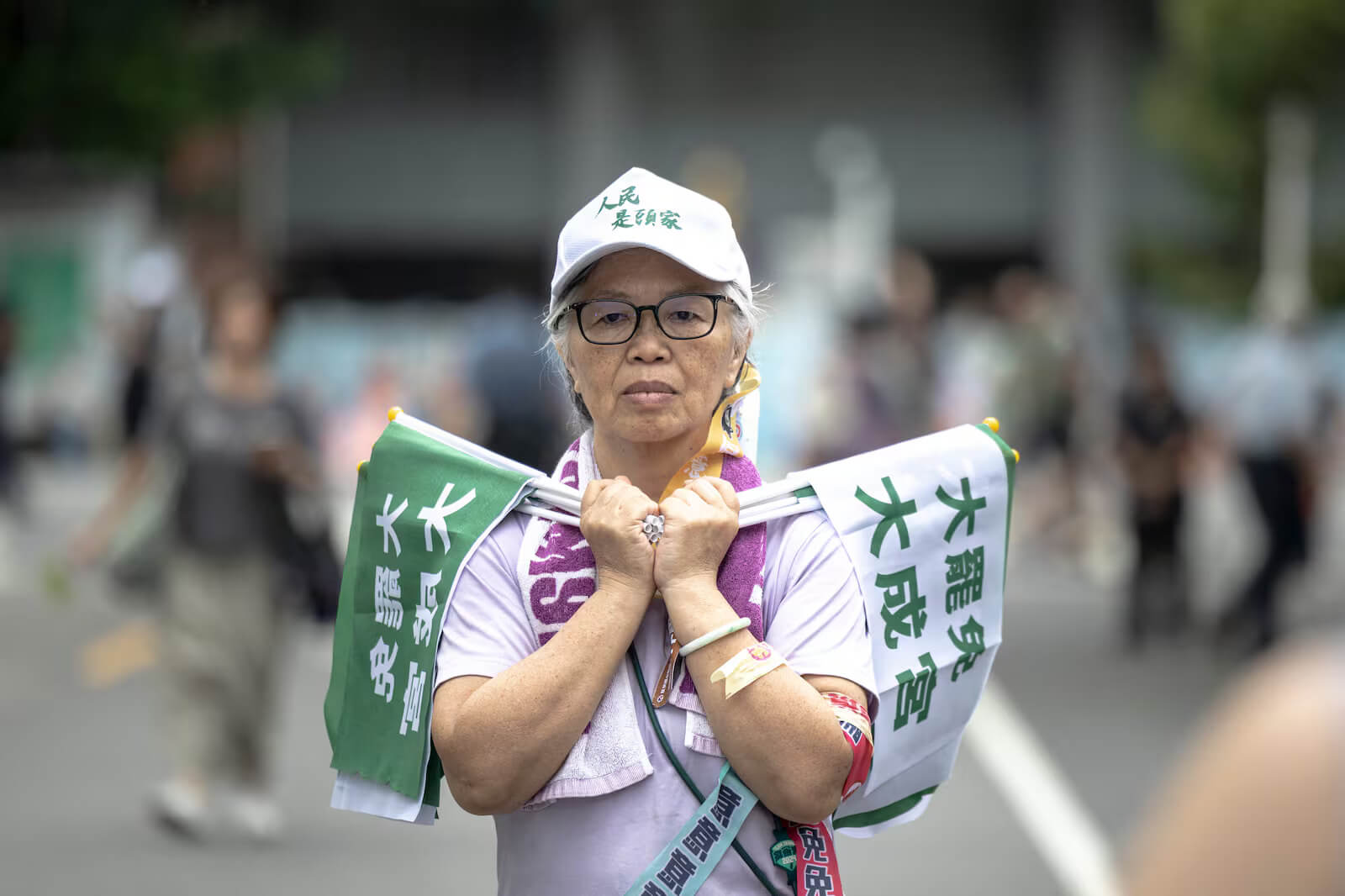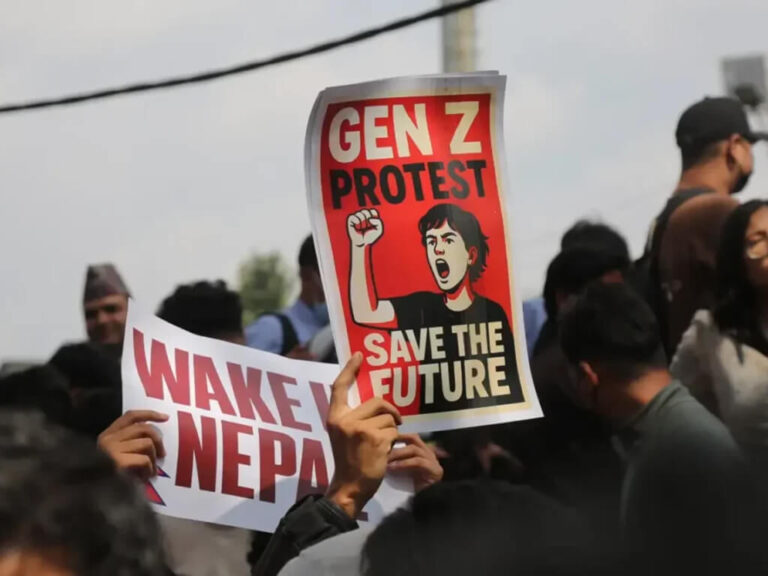Taiwan has long sought to present itself as distinct from China, portraying the image of a free and democratic nation aligned with Western values and firmly rejecting China’s authoritarian Communist model. The island regularly holds competitive elections with broad participation from multiple political parties and takes pride in the strength of its democratic institutions.
Recently, however, Taiwan’s politics have begun to cast a shadow on that image. The two dominant parties, the Democratic Progressive Party (DPP), which currently governs and promotes Taiwanese nationalism, and the Kuomintang (KMT), the largest party in parliament and the former ruling power, are locked in an increasingly bitter struggle. Their rivalry has grown more hostile, marked by sharp rhetoric, deep political divisions, and even physical confrontations in the legislature.
In July, the DPP attempted to remove a large number of KMT lawmakers from parliament, though the move ultimately failed. The episode has raised serious concerns at home and abroad, with critics warning that such conduct risks damaging Taiwan’s reputation as a democratic alternative to authoritarian China.
A poll to oust opposition
It was a rare and highly unusual event, something seldom seen in democratic societies though not unheard of. A public vote was held to try to remove several lawmakers accused of having ties to a rival state. Critics labeled them “Pro China” and claimed they did not deserve to remain in parliament, despite being elected by voters.
In the first phase, polling took place in 24 of the 31 targeted constituencies, all represented by members of the Kuomintang. Voters were asked whether they supported recalling their local legislator and holding a fresh election. After polls closed, Taiwan’s Central Election Commission announced that all 24 recall attempts had failed.
Under Taiwan’s recall laws, a legislator can be removed only if the number of votes for recall reaches at least 25 percent of the total electorate and also exceeds the number of votes against. None of the 24 districts met both conditions. The remaining seven constituencies will hold their recall votes in the coming weeks. With the defeats on Saturday, campaigners now face greater pressure to secure at least six successful “Agree” votes to shift the political balance.
The recall process came just 18 months after a national election but still drew significant public interest. Many in Taiwan seemed more determined to protect their hard won democracy. Massive rallies were held in Taipei on the eve of the vote, with tens of thousands turning out to support both sides.
Meanwhile, the Kuomintang’s attempts to recall Democratic Progressive Party lawmakers have also fallen short. Authorities have detained dozens of individuals accused of forging signatures to back these efforts.
Hostile political tug of war
Taiwanese politics is deeply polarized between the “Green” camp, which supports nationalism, and the “Blue” camp, which favors eventual unification with China. This divide runs through society and is reflected in parliament. The green camp, led by President Lai Ching-te’s Democratic Progressive Party (DPP), has increasingly clashed with the blue camp, including the Kuomintang (KMT), which currently holds a legislative majority.
Elections over the past year produced split results, with the presidency going to the DPP and parliament controlled by the KMT. This power split has fueled constant political battles, stalled legislation, and frequent efforts by each side to block the other’s agenda. The recent recall vote was the latest chapter in this rivalry.
Had the DPP managed to unseat just six KMT lawmakers in Taiwan’s 113-member legislature, President Lai could have advanced policies that strongly oppose unification with China. Such a shift, however, would almost certainly have drawn a sharp response from Beijing, whose Communist Party labels Lai and the DPP as “Separatists.”
After Saturday’s vote, President Lai called for unity, possibly addressing concerns that the recall attempt had deepened divisions in society. He said the outcome was neither a victory for one party nor a defeat for the other, but a sign of Taiwan’s democratic strength. Lai added that Taiwan still faced many challenges and must show the world it can resolve disputes through its constitutional system and unite in a democratic spirit after competition. Despite his appeal, divisions remain visible in the streets, with many DPP supporters, mostly younger voters who want to erase remnants of China’s influence from Taiwan’s history, expressing deep disappointment over the results.
The KMT celebrated the outcome, portraying it as a rejection of what it viewed as the DPP’s effort to overturn an election. The party also urged people not to interpret the result as a statement on cross-Strait politics, stressing that it should not be reduced to a pro-China versus pro-Taiwan debate. Instead, it said it stood with the public in calling for stability, competence, and inclusive governance. Though wounds are made.
How will it damage Taiwan?
China now holds a diplomatic edge over Taiwan and runs extensive propaganda campaigns that rival those of the United States in Asia. Recent incidents in Taiwan could end up working against the island itself. They may be used to cast the DPP in a negative light and suggest that it does not truly represent the will of the people. Some may also see them as proof that public support for Taiwanese nationalism is weaker than it appears. If growing divisions lead to attacks on Kuomintang members or violence in the streets, China could seize the moment to improve its image and further erode Western backing for Taiwan.
The KMT rejects claims of being pro-China, saying that, like the DPP, it opposes annexation by the Chinese Communist Party. It argues, however, that Taiwan’s autonomy is best preserved through steady and cooperative relations with Beijing. KMT supporters have called the recall effort an undemocratic power grab by those unwilling to accept the 2024 election outcome. Yet skepticism is not limited to the DPP; many experts remain doubtful about the KMT as well.
One thing is clear: any move that undermines democracy will put Taiwan’s distinct identity in doubt. And then there are no two Chinas.








